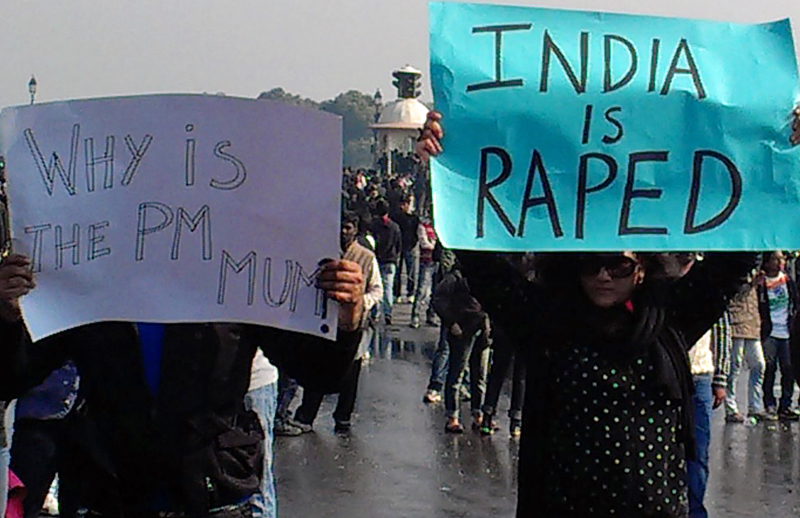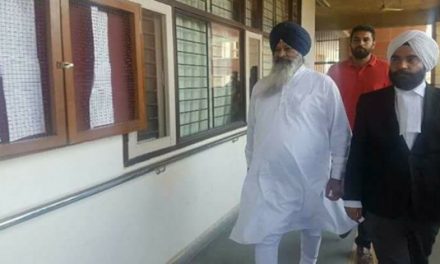Since Friday morning I have entertained a number of queries from friends and acquaintances about my involvement with a new ‘youth committee’ (Gurdwara-related) in Southall, west London, with some asking if NAUJAWANI.com is now endorsing parties in Gurdwara elections. The answer to the latter is a definite no, whilst my perceived involvement in such endeavours is also unwarranted. The articles on this site provide an opportunity for intelligent discourse about issues of interest to the Sikh and Punjabi communities around the World which is precisely what we published late last week that led to the questions. Further to the responses I proffered in private messages, I wanted to publicly respond to those questions and the instigating article, explaining why I could never support any prospective Gurdwara committee nor participate in a Gurdwara election – why? Because it’s against my religion.
When I was growing up, my father was a member of two committees: one was the executive of a national Sikh organisation and the second was the local Gurdwara. Along with my family, I spent countless weekends (and week-nights) of my formative years within the Gurdwara building, listening to Gurbani, helping to clean up, or mostly playing in the stairwells and open spaces upstairs. The Gurdwara literally was a second home to me so I came to appreciate how this space was the hub and heartbeat of the Sikh community. As I got older and with my father no longer in the committee, the Gurdwara remained the centre-point for any Sikh activities that I was engaged in and naturally I began to consider the role of what an ideal Gurdwara could/should play with my fellow community organisers. There were a number of occasions at the turn of the century when I was privy to conversations in my local area of North Hertfordshire about the establishment of a single, unified Gurdwara (there were then four, today there are five) and the services that we could provide to the local area. I grew excited at the prospect of the change that we could make to our local community and even dreamt of a new dawn for Sikhi that we could introduce into the area, perhaps go on to spread throughout the UK, and maybe even one day replicate across the globe.
Over a decade has passed and the Gurdwara that I used to attend as a boy has come under the control of a ‘youth(ful) committee’ in recent years without my contribution or input, and sure enough programmes and functionality have improved, but crucially the change that I envisaged has not come to pass. I had stepped back from Gurdwara-based activities almost ten years ago after I was forced by an action of my own endeavour to reconsider what I understood by Sikh political structures in theory; what I learnt was nothing short of revolutionary and showed me that the way Gurdware are structured is very different from how it should be. Last Friday, my fellow writer here Upjeet Kaur authored an article about the formation of a new ‘youth committee’ that hopes to serve in Southall Gurdwara. Reading it back, I can see in her words the same passion that I held in my younger days for bettering society by reinvigorating the local Gurdwara and improving the services it provides. But whilst the hope of ‘youth committees’ in some UK towns and North American cities is being welcomed, what we’re failing to recognise is that the elections in which Sikhs are participating and the resulting committees that are being formed, go against the Sikh doctrines of polity, and is the reason why no real change has or will come to pass from such engagement, whether in North Hertfordshire, Southall or anywhere else.
Gurdwara committees are elected using the ‘1-person 1-vote’ process whereby registered members of the Sangat select a single representative from a list of candidates who want to serve the Gurdwara and represent them by controlling its administration. It is a system that we are familiar with from the classroom to Parliament and when discussions around electoral systems are had, a much-spoken phrase is that this ‘might not be perfect, but it’s the best system that we have‘. In a strictly Sikh context that’s not true. Elections are divisive, polarising, and ultimately lead to sections of society going unrepresented; clearly they are not in-keeping with Sikh values and as such should have no place in Sikh institutions. The House of Guru Nanak promoted instead the value of tolerance, the benefit of discourse, and the strength that comes from collective empowerment when establishing political or administrative structures. This was exemplified by Guru Nanak when as the Tenth Master he invested leadership of the Sikhs to the Guru Granth and Guru Panth. This coupled with the doctrines of Sarbat (regular assembly) and Gurmatta (consensually reached decision-making) form the basis of Sikh political structures and should be at the heart of how we manage our institutions. I have heard it mooted that in order to make this happen in a Gurdwara, one needs to first work within the prevailing system to gain influence and control, but this is highly paradoxical – the authority vested in an elected committee who seek to alter their own existence is compromised as soon as they evoke a hierarchical change. In any case, removal of the present system in order to return to a Guru-devised polity has to come from another Sikh doctrine, namely the Sangat, and not from an elected committee.
The electoral process is not alone in being misplaced in a truly Sikh institution. The Gurdwara committee itself, regardless of the individuals who belong to it, is inherently a dictatorship and although it might not start out that way, denigrates over time to become so. It doesn’t matter whether it is youth-led or comprised of earlier generations, committees operate on a hierarchical basis that is alien to the Sikh doctrine of Guru Granth-Guru Panth. This is why we have so many Gurdware that are defined by the character or personality of the Pardhan/General Secretary as opposed to the Sikh-centric ideology of the House of Guru Nanak. They are most commonly an individual who is dominant through charisma, knowledge or sheer force, leading a diverse band of well-wishers, relatives and in some cases followers who make up the rest of the committee. Whilst it might seem as if they operate as a unit, the unsettling truth is that the leading individual’s agenda is the only one that is advocated. Glaring examples of this set-up are rife throughout Gurdware in the Diaspora, but perhaps quite prominently in Southall’s most popular place of worship where previous partners, side-kicks and confidantes of the current administration have all fallen by the wayside when the agenda of the dictatorship has been challenged.
I wholly understand (perhaps better than most) why some like my respected peer Upjeet Kaur are so driven to enter this foray where they hope to implement change. It is not her intentions I disagree with, but the apparent “solutions to so many problems” that she presents – a conclusion drawn with all due respect by an all too often incomplete understanding of Sikh ideology. I don’t expect this article to grab as much attention as Upjeet Kaur’s offering from Friday did; what i’m saying is neither popular, nor more importantly is it easy to comprehend. In defence of my viewpoint, I have only very briefly been able to touch upon both the problem and the solution here and have not been able to present the bigger picture – something I have done in an upcoming book to be released later this year. Nonetheless it should be clear from the preceding paragraphs that simply trying to do something within Gurdware administrations is not better than nothing. I began this article by saying that Gurdwara committees and elections were against my religion; although I made that statement partly tongue-in-cheek, it is a rudimentary way of getting across the point I have tried to elaborate on. I have never voted in a Gurdwara committee election, nor have I belonged to one – it is a step in a direction that I dare not take for my conscience will not survive it. How Sikhs engage with their Gurdware going forward is a question of vital importance and one that shouldn’t be taken lightly, quite the opposite in fact. It is only through deeper reflection that one can come to the realisation that it is revolution we need, not a change of personnel and agenda.






